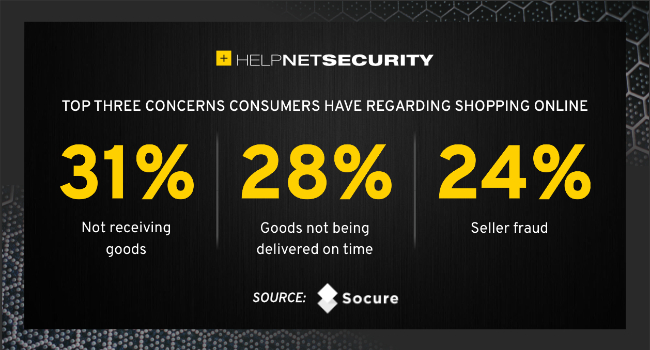Seller-related fraud threatens long-term customer retention
Socure unveiled its survey, providing a stark warning for e-commerce platforms and marketplaces that consumers have zero tolerance for seller-related identity fraud and won’t return to a platform if that occurs.

In fact, 51% of consumers are reluctant to do business with smaller merchants due to the perceived risk of fraud. And what’s more, a whopping 72% of consumers said that if a purchased item was not received due to seller fraud, they would never do business with that platform again.
Yet only 27% of consumers said they would abandon the platform if an item was not delivered on time, which suggests that seller-related fraud is a deal-breaker when it comes to keeping customers long-term.
The survey also revealed the top three concerns consumers have regarding shopping online, which are not receiving goods (31%), goods not being delivered on time (28%), and seller fraud (24%). These findings indicate consumers are dubious about the safety of shopping online this season, and e-commerce platforms need to be prepared.
Uptick in e-commerce volume to be accompanied by higher fraud risk
As the 2021 holiday online shopping blitz is now well underway, it’s critical that e-commerce merchants prepare for anticipated increases in fraud losses and the long-term effects on their brand.
According to the survey, the uptick in e-commerce volume will be accompanied by higher fraud risk, with 85% of consumers anticipating more or the same amount of fraud this year as compared to 2020.
The research also revealed that the expected increases in fraud risk are due to technology risks within e-commerce platforms which ranked as the second biggest driver (21% of consumers), right after increases in online transactions (31%).
The time is now to put controls in place to better assess the safety of allowing buyers and sellers to transact while protecting brand reputation. Looking across the landscape, many platforms assess only aspects of an identity—a phone number, an address, or an email—that, in silos, fail to gauge fraud at scale.